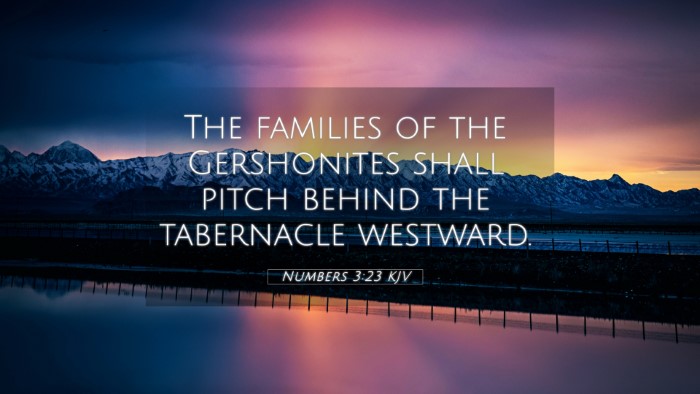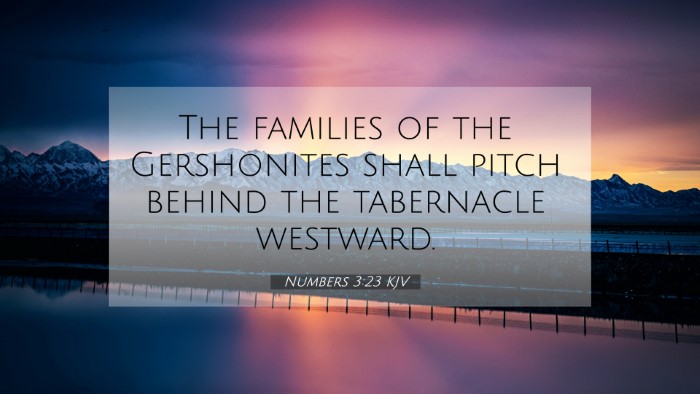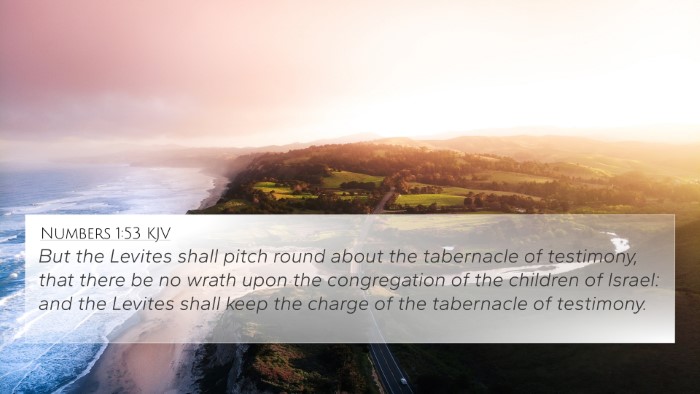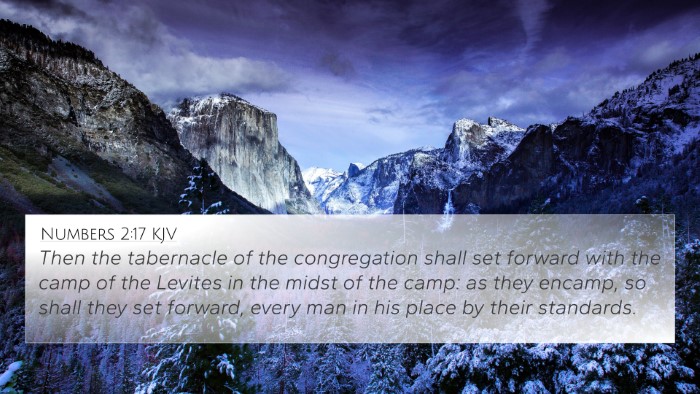Understanding Numbers 3:23
Bible Verse: Numbers 3:23
"The families of the Gershonites were to camp behind the tabernacle westward."
Verse Overview
This verse provides essential information about the organizational structure of the Israelites' encampment around the Tabernacle. It specifically mentions the placement of the families of the Gershonites, one of the Levitical clans, signifying their importance in the worship and mobility of the Israelites.
Commentary Insights
From various public domain commentaries, we can gather deeper insights into the significance of this verse and its implications:
Matthew Henry's Commentary
Henry emphasizes the orderly arrangement of the Israelite camp, which reflects God's divine order in the worship system. The Gershonites, entrusted with the care of the Tabernacle's coverings and other materials, highlight the importance of service to God and the structure required in worship. He notes that their position behind the Tabernacle may symbolize the covering and protection given to the worship space by those responsible for its maintenance.
Albert Barnes' Notes
Barnes points out that the Gershonites are one of three major Levitical families, each designated specific responsibilities. He elaborates on their duties, which included transporting the Tabernacle's curtains and other components when the Israelites traveled. This signifies a critical role in maintaining the sanctity of the religious practices as they journeyed through the wilderness.
Adam Clarke's Commentary
Clarke provides context by explaining the geographical arrangement of the tribes of Israel around the Tabernacle. He highlights that being positioned westward signifies a direction that holds various theological implications, such as the association with the sun setting, symbolizing the end of a day or life. Clarke also draws connections between this organizational structure and later practices within Israelite worship.
Thematic Connections and Cross-References
Numbers 3:23 relates to various thematic elements within the Bible, particularly regarding worship, service, and community structure. Here are some biblical cross-references that help deepen our understanding of the themes in this verse:
- Exodus 25:40 - The importance of following divine instructions in the construction of the Tabernacle.
- Leviticus 1:9 - Establishes the significance of the offerings made to God, which helps contextualize the role of the Tabernacle.
- Numbers 1:50-51 - The duties assigned to the Levites regarding the Tabernacle further illuminate their importance within the community.
- Exodus 40:18-19 - Describes the setting up of the Tabernacle, indicating the characters involved in its management.
- Deuteronomy 10:8 - Shares God’s intended separation of the Levites among the tribes to serve Him, linking their role to divine worship.
- Hebrews 9:1-5 - Provides understanding of the significance of the earthly sanctuary, drawing parallels with the heavenly realm.
- 1 Peter 2:9 - Relates to believers being a royal priesthood, echoing the Levitical duties in a New Testament context.
Applications and Reflections
As we reflect on Numbers 3:23, several applications can be drawn from its teachings:
- Order in Worship: The detailed organization serves as a reminder of the importance of order in our worship practices today.
- Service to God: Every role, no matter how seemingly small, is vital in the function of the community of believers.
- God’s Presence: Understanding where God’s people are positioned in relation to His sanctuary emphasizes the continuous need for divine presence among His people.
- Community Structure: The arrangement of tribes gives insight into how God desires His people to function together, encouraging unity and purpose.
Concluding Thoughts
Numbers 3:23 holds significant implications for both the ancient Israelites and contemporary believers. Through the lens of various commentaries, we see it’s not just a placement order; it symbolizes a deeper relationship with God, a structure of service, and a call towards communal sanctity. Understanding the interconnections of scripture through cross-referencing can foster a greater grasp of these divine themes.




